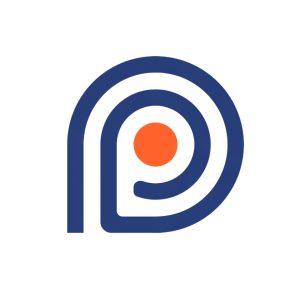Predictive Oncology Reports Positive Results Utilizing Artificial Intelligence for Drug Repurposing
Rhea-AI Summary
Predictive Oncology (NASDAQ: POAI) reported successful results in its drug repurposing initiative using artificial intelligence. The company identified several abandoned or discontinued pharmaceutical drugs for potential repurposing in cancer treatment, particularly for ovarian, colon, and breast cancer.
Using its proprietary AI and machine learning platform, combined with its biobank of primary tumor samples and drug response data, POAI's system made 964 confident predictions from just 92 laboratory experiments, covering 79% of all possible experiments. This eliminated approximately 18 months of wet lab testing and identified two drugs that outperformed a standard colon cancer treatment.
The company evaluated six specific drug candidates, including inhibitors targeting Akt, Aurora A, PI3Kα, HDAC1/3, VEGFR2/KDR, and PARP1/2. The drug repurposing market is projected to grow from $32.1 billion in 2023 to $51.8 billion by 2033, representing a 4.5% CAGR.
Positive
- AI platform successfully predicted drug efficacy with 10x efficiency, saving 18 months of testing time
- Two identified drugs outperformed standard colon cancer treatment
- Platform achieved 79% coverage of possible experiments from initial testing
- Operating in growing market projected to reach $51.8B by 2033 (4.5% CAGR)
Negative
- None.
News Market Reaction – POAI
On the day this news was published, POAI gained 20.37%, reflecting a significant positive market reaction.
Data tracked by StockTitan Argus on the day of publication.
Company successfully identified several abandoned or discontinued drugs for further testing and development in ovarian and other cancer types
Creates significant business development opportunities with meaningful long-term commercial potential with large pharmaceutical companies
PITTSBURGH, Feb. 18, 2025 (GLOBE NEWSWIRE) -- Predictive Oncology Inc. (NASDAQ: POAI), a leader in AI-driven drug discovery and biologics, today provided an update highlighting new successes with its drug repurposing initiative.
Using publicly available datasets on drugs that have either been abandoned or discontinued by large pharmaceutical companies, Predictive Oncology has developed a registry of promising candidates that can potentially be repurposed for additional or alternative indications.
By utilizing its proprietary artificial intelligence and machine learning platform and leveraging its vast biobank of primary tumor samples and decades of drug response data, Predictive identified select drug candidates with promising mechanisms of action for further clinical testing with an initial focus on ovarian, colon and breast cancer and subsequently identified candidates with potential efficacy in treating colon and ovarian cancer.
“Early results show that by running our platform for just eight weeks, we were able to identify compounds for use in one or more tumor types,” said Dr. Arlette Uihlein, Senior Vice President of Translational Medicine and Drug Discovery and Medical Director at Predictive Oncology. “By precisely measuring only 92 combinations of laboratory experiments on patient tumor samples, the predictive model was capable of making an additional 964 confident predictions, covering a total of
“Our active learning AI platform enabled us to efficiently and confidently predict an additional 10x the number of measured experiments, eliminating at least 18 months of wet lab testing and identifying two drugs as having very promising results for use in one or more tumor types. Both of these drugs outperformed a known standard of care drug used to treat colon cancer,” Dr. Uihlein concluded.
Specific examples of currently abandoned or discontinued drugs that Predictive evaluated for potential efficacy include:
- Drug A: Akt Inhibitor
- Drug B: selective Aurora A Inhibitor
- Drug C: selective PI3Kα Inhibitor
- Drug D: HDAC1/3 Inhibitor
- Drug E: VEGFR2/KDR Inhibitor
- Drug F: PARP1/2 Inhibitor
Leveraging the company’s foundational proof of concept study, Predictive is also using its AI platform to identify a set of FDA-approved drugs for other cancers that show promising activity in ovarian cancer, the results of which will soon be made public.
“Encouraged by the outcome of the Magee Study and ASCO presentation, which predicted short and long-term survival of ovarian cancer patents, we made a conscious decision to proactively investigate potential candidates for drug repurposing or reuse specifically for ovarian cancer,” said Raymond Vennare, Chief Executive Officer of Predictive Oncology. “We continue to demonstrate that our high throughput screening approach using the live cell patient tumors in our biobank, coupled with our AI models, is able to identify drugs worthy of further consideration. The significance of these initial drug repurposing findings may lead to some very productive discussions with a range of potential drug development partners.”
Utilizing its artificial intelligence platform, the company believes that the ability to repurpose approved or abandoned drugs for additional indications represents a meaningful opportunity to deliver value by developing new therapies faster and cheaper than through traditional early drug discovery. A recent market report has projected that the market for repurposed drugs will grow to
About Predictive Oncology
Predictive Oncology is on the cutting edge of the rapidly growing use of artificial intelligence and machine learning to expedite early drug discovery and enable drug development for the benefit of cancer patients worldwide. The company’s scientifically validated AI platform, PEDAL, is able to predict with
Investor Relations Contact:
Tim McCarthy
LifeSci Advisors, LLC
tim@lifesciadvisors.com
Forward-Looking Statements:
Certain matters discussed in this release contain forward-looking statements. These forward- looking statements reflect our current expectations and projections about future events and are subject to substantial risks, uncertainties and assumptions about our operations and the investments we make. All statements, other than statements of historical facts, included in this press release regarding our strategy, future operations, future financial position, future revenue and financial performance, projected costs, prospects, changes in management, plans and objectives of management are forward-looking statements. The words “anticipate,” “believe,” “estimate,” “expect,” “intend,” “may,” “plan,” “would,” “target” and similar expressions are intended to identify forward-looking statements, although not all forward-looking statements contain these identifying words. Our actual future performance may materially differ from that contemplated by the forward-looking statements as a result of a variety of factors including, among other things, factors discussed under the heading “Risk Factors” in our filings with the SEC. Except as expressly required by law, the company disclaims any intent or obligation to update these forward-looking statements.








